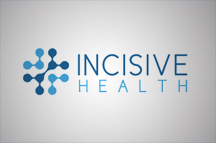Was your Twitter feed eclipsed (or overcast)? Coming up are some of our highlights from the week in health...
- Here is the opening salvo of the election campaign from Labour:

- And here is the response from the Conservatives:

- Meanwhile the Liberal Democrats also got in on the act:

- It was also pointed out that it is difficult to play political football with a broken bone…
- Concern about the NHS by gender – number 1 issue for women, number 2 issue for men
- One last picture of the solar eclipse. This one is literally out of this world.
- The no apology apology. They don’t work. And they hurt.
- Vital Signs – a new report from the Richmond Group.
- How many candidates will sign up for statistics training if elected?
- Follow the debate on the sustainable healthcare meeting at #R4SHC.
- Missile or microbe? Which is more likely to kill 10m people?
- 59% of MPs use Twitter daily.
- Are daydreams the secret to happiness?
- Understanding the impact of autism on parents #Istandquietly.
- The myth of the rational patient (or doctor). Interesting blog by @betabetic.
- What mechanisms does the Nuffield Trust #healthleaders panel think have been most effective at improving the NHS?
- The civil service code has been amended: media contact now requires ministerial authorisation.
- @LisaSaysThis is angry but she has some useful suggestions for NHS England on CAMHS.
- #TheDress. 23andMe is polling users to identify whether and how DNA influences colour perception.
- Researchers have created a genetic map of the UK.
From America:
- Bloomberg and Gates launch a legal fund to help countries fight big tobacco.
- The precarious success of Obamacare in reducing uninsured rates.
- Does the US have enough health capacity to keep up with the impact of Obamacare?
- How much does * cost? Google searches by state.
- Facebook ratings for US hospitals correlate with common indicators for quality of care.
And finally…
- Another great correlation (via @jasonoflondon):

In an NHS environment that is noisy, changing rapidly and where decision-makers are under intense pressure, policy communications need to be incisive to make an impact. Incisive Health knows how to cut through the noise and competing priorities to deliver results that enhance our clients' businesses and reputations and - ultimately - improve healthcare for patients.












